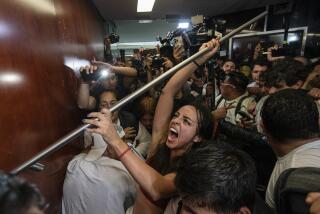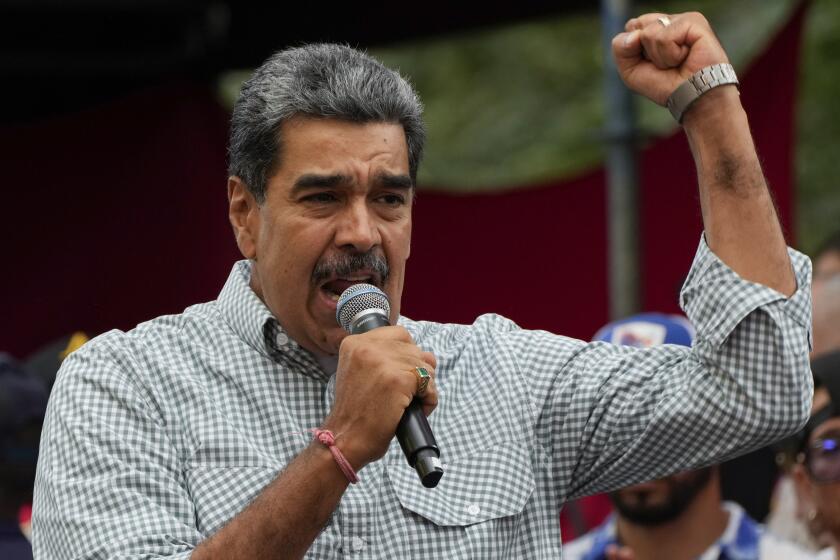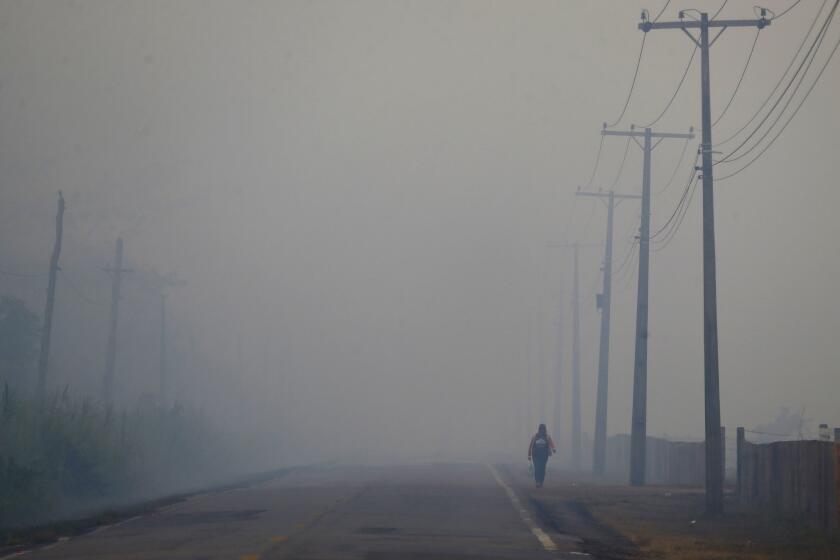Venezuela’s political crisis deepens as its legislature is essentially dissolved
Venezuela’s political crisis deepened Friday as the controversial constitutional assembly declared that it is the country’s sole legislative body, essentially dissolving the democratically elected congress.
“All public bodies are subordinated to the National Constitutional Assembly,” said Delcy Rodriguez, the body’s president. “No other power can impede our decisions.”
The move was hardly a surprise. The assembly was elected late last month in a disputed election that domestic and and international critics said was an unconstitutional maneuver by President Nicolas Maduro to neuter the opposition-controlled legislature, known as the National Assembly, and consolidate his power. All of the candidates — and all 545 delegates who were elected — are loyal to the president.
The electoral consulting company hired by the government, Britain-based Smartmatic, denounced the vote count as “manipulated.”
Venezuela has been paralyzed by months of protests against food shortages, violent crime, a collapsing economy and the deeply unpopular Maduro’s autocratic governing style. Protests have left more than 130 dead and thousands injured. Maduro has threatened to punish opposition leaders with jail terms.
He has characterized the formation of an assembly to draft a new constitution as a move to restore order.
Speaking at a session of the constitutional assembly Friday at the Federal Palace, Rodriguez reiterated that the new assembly’s task is to “restore order.”
“We will not permit any more distortions, misuses of power to attack the Venezuelan rule of law,” he told the delegates.
Opposition leaders vowed to fight the move.
Julio Borges, president of the National Assembly, said in a statement that his body’s members are the “legitimate representatives of popular will” and that the 1999 constitution guarantees the democratically elected congress’ right to continue its functions.
“The annulment will not be respected by the National Assembly, the international community or the people” of Venezuela, he said.
Maduro has already moved against his most prominent critic, former Atty. Gen. Luisa Ortega Diaz, who prior to the July 30 vote declared the new assembly unconstitutional because it was not first authorized by a public plebiscite. On Aug. 4, the Maduro-controlled Supreme Court ordered the firing of Ortega.
Her replacement, Tarek William Saab, subsequently accused Ortega of being the “mastermind” of the deaths of the 130 people killed in clashes.
On Wednesday, the new assembly voted to deprive Ortega’s husband, congressman German Ferrer, of his congressional immunity. The Supreme Court then issued a warrant for Ferrer’s arrest, claiming that he extorted government employees in exchange for promises they would not be investigated on corruption charges.
Special correspondents Mogollon and Kraul reported from Caracas and Bogota respectively.
More to Read
Sign up for Essential California
The most important California stories and recommendations in your inbox every morning.
You may occasionally receive promotional content from the Los Angeles Times.










